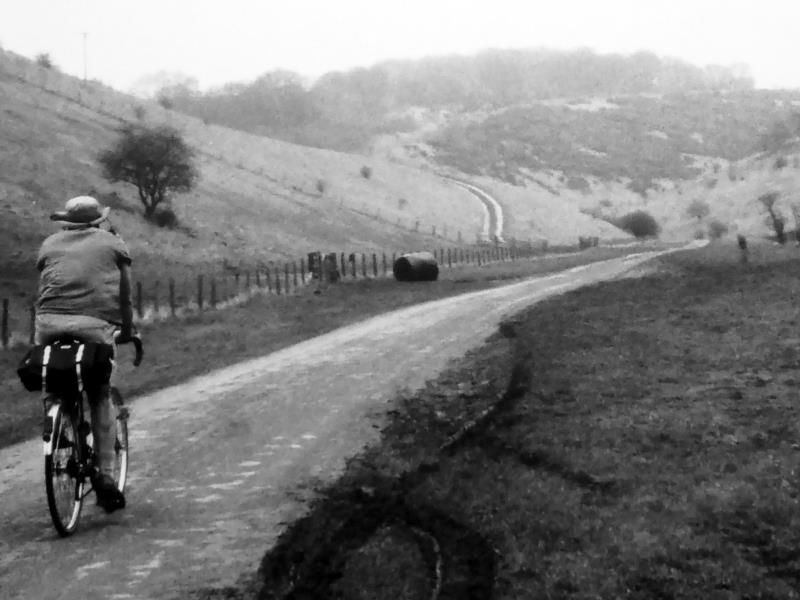Want to sound like an East Yorkshire native? No, I thought not. But if you did, you’d describe today’s route as ‘Pock to Brid, via Drif’. We’re keen on initial syllables as nicknames here. Anyway, after a sound night’s sleep in my own bed at home in York, I got back to last night’s finish at Pocklington using the bike-carrying X46 bus again.
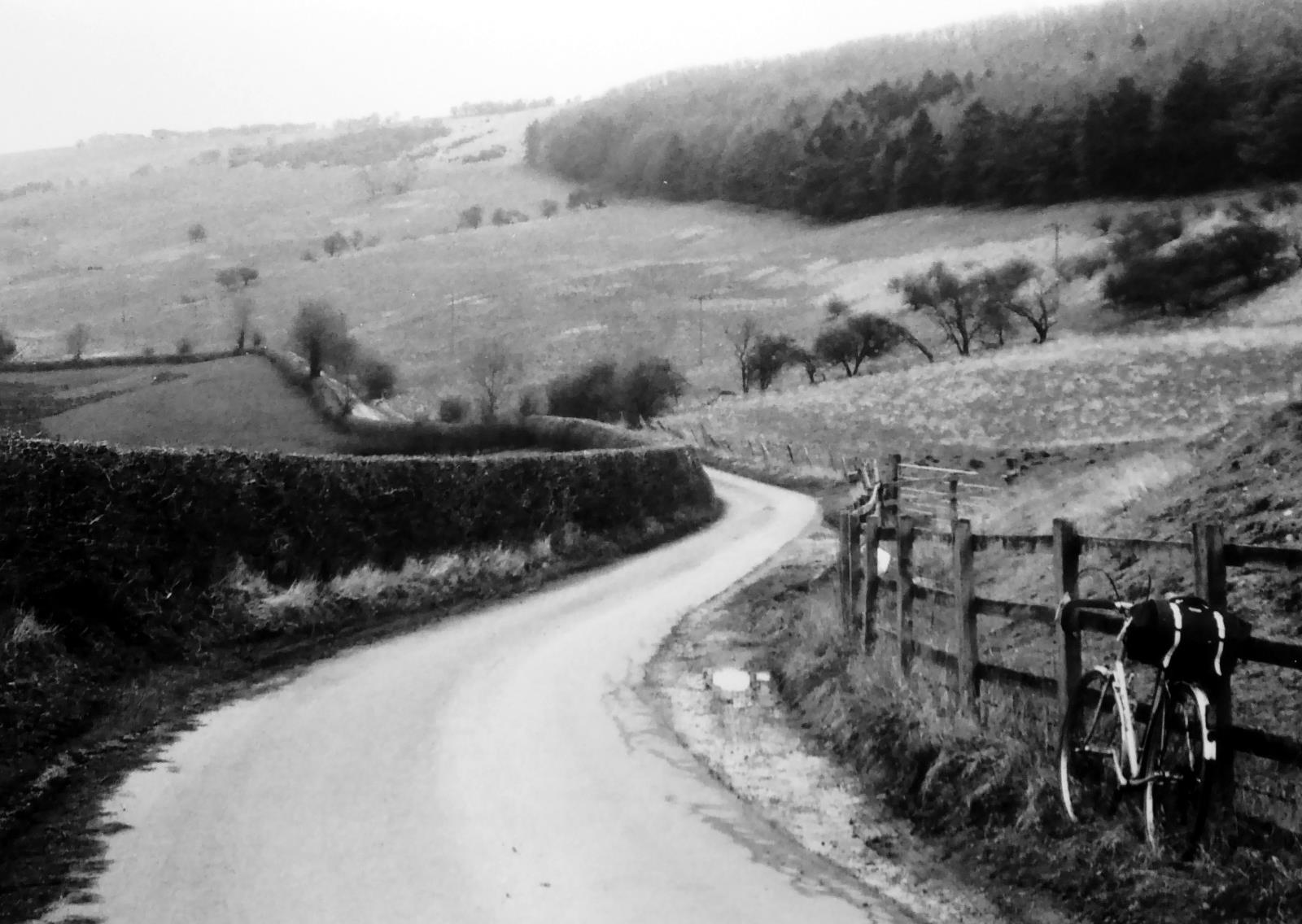
My final day of WoRing was super: gentle sunshine, friendly topography and a helpful tailwind.
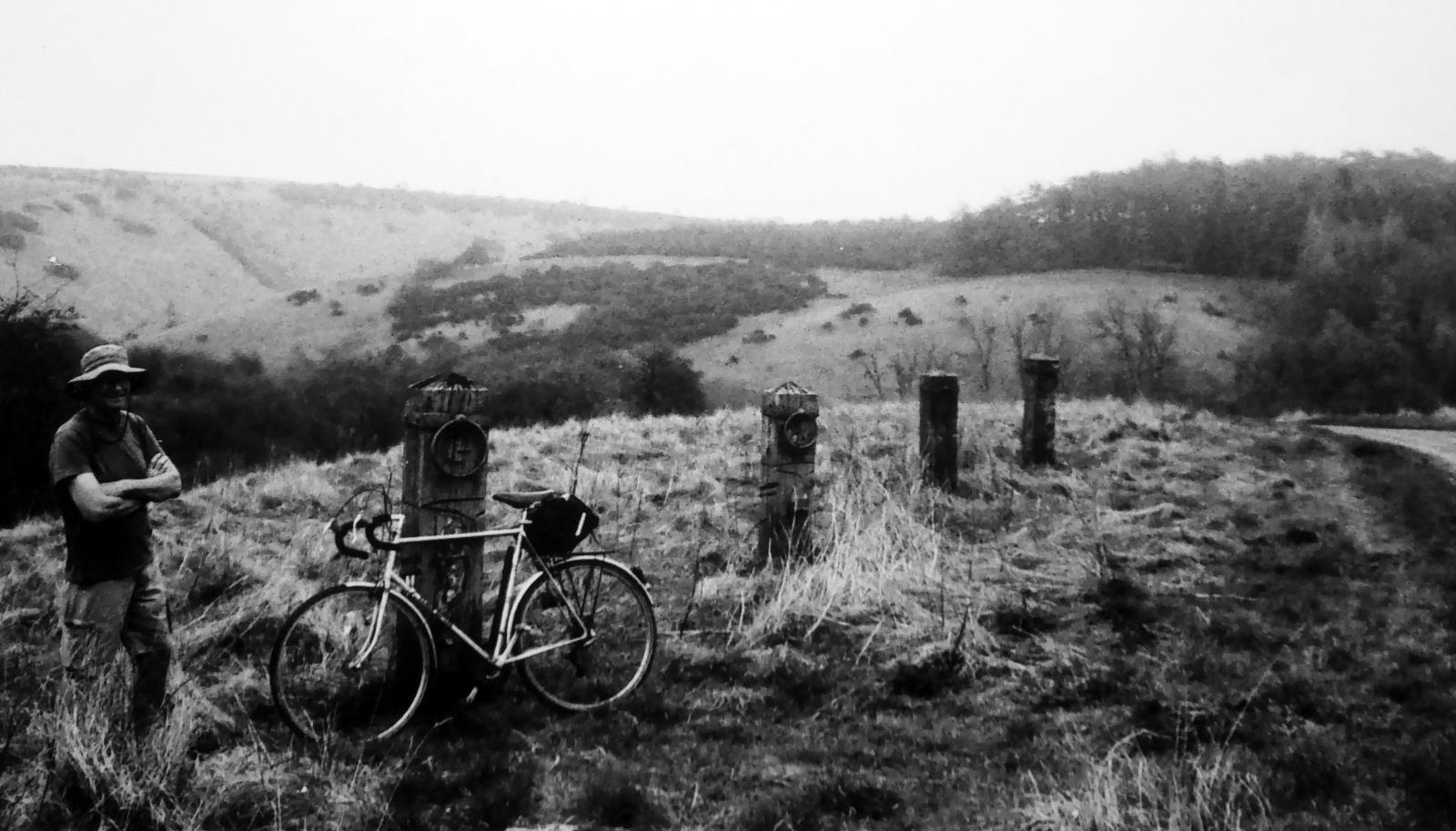
Out of Pocklington was some of my favourite riding in Yorkshire: the Wolds, and specifically, the valley bottom lane through Millington Pasture.
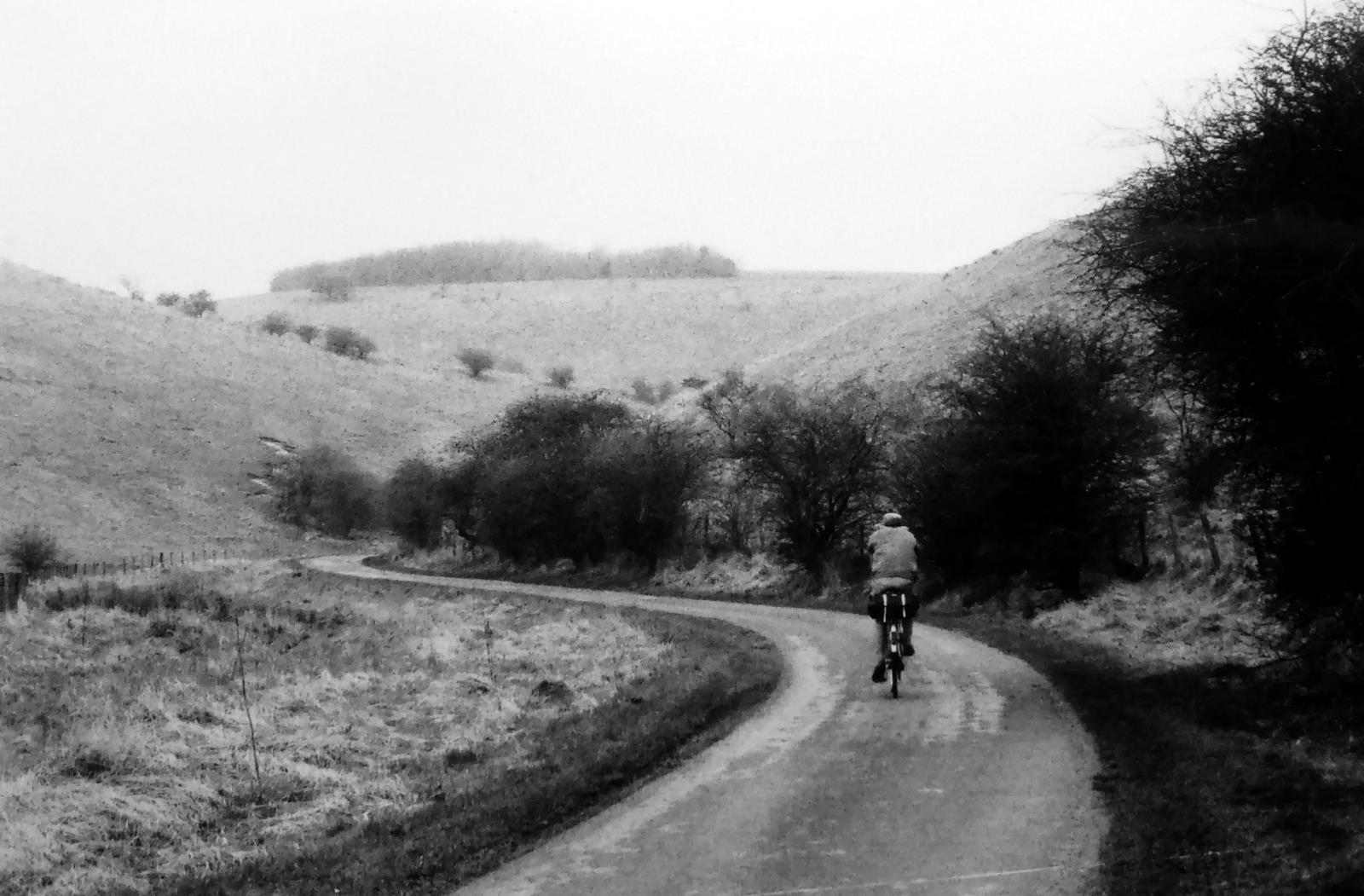
The geography round here is chalk dry valleys, giving you the odd feeling of cycling along LP grooves. Perhaps some monster-scale promotional green-vinyl album, circa 1978 – another period reference for my trip.
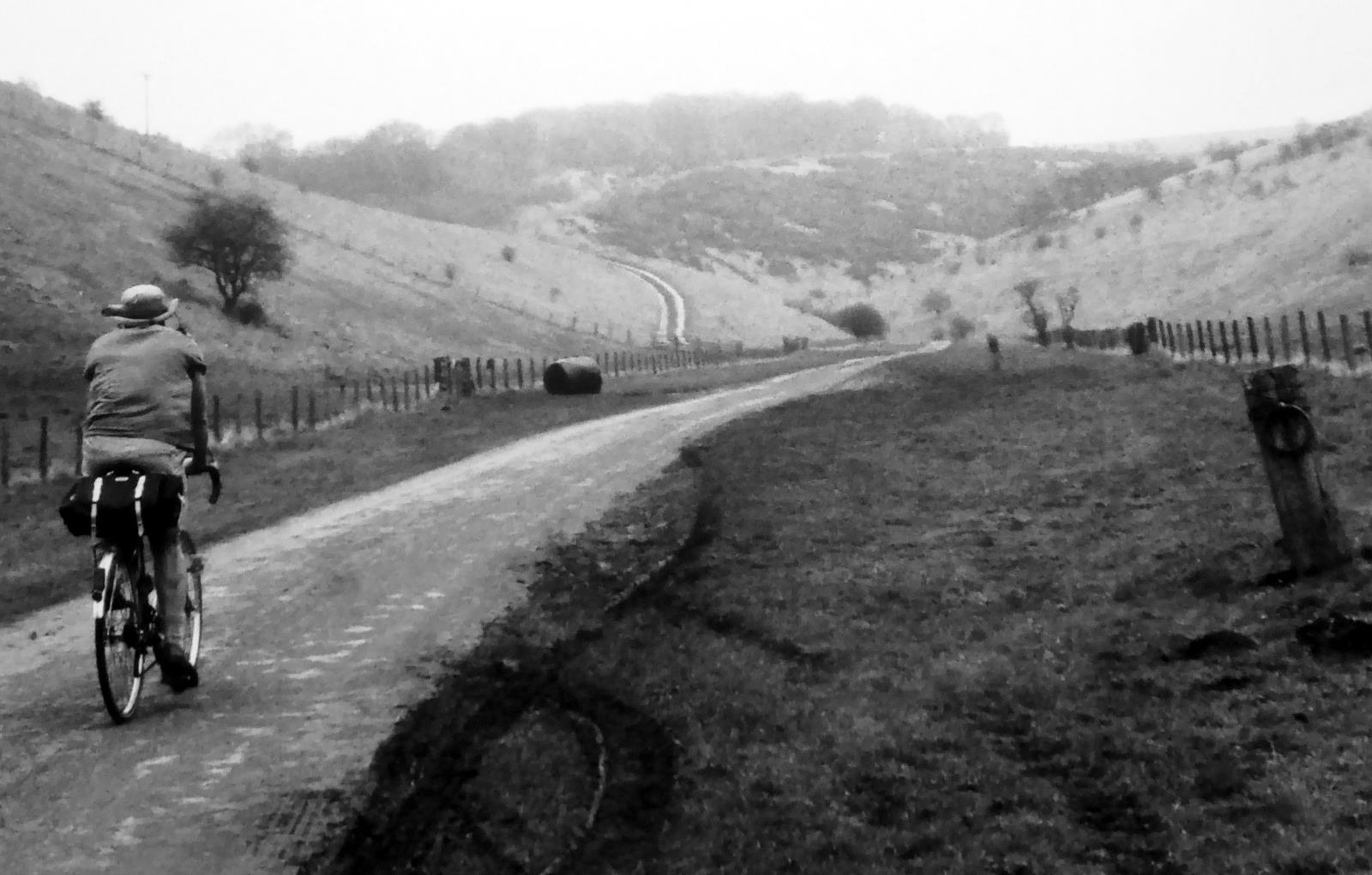
From Huggate there’s a long section of what feels like five or six miles of freewheeling, on a straight little-trafficked lane that goes slightly downhill all the way. The level agricultural landscape is open all around you, enabling you to see everything. Which, to be fair, isn’t very much.
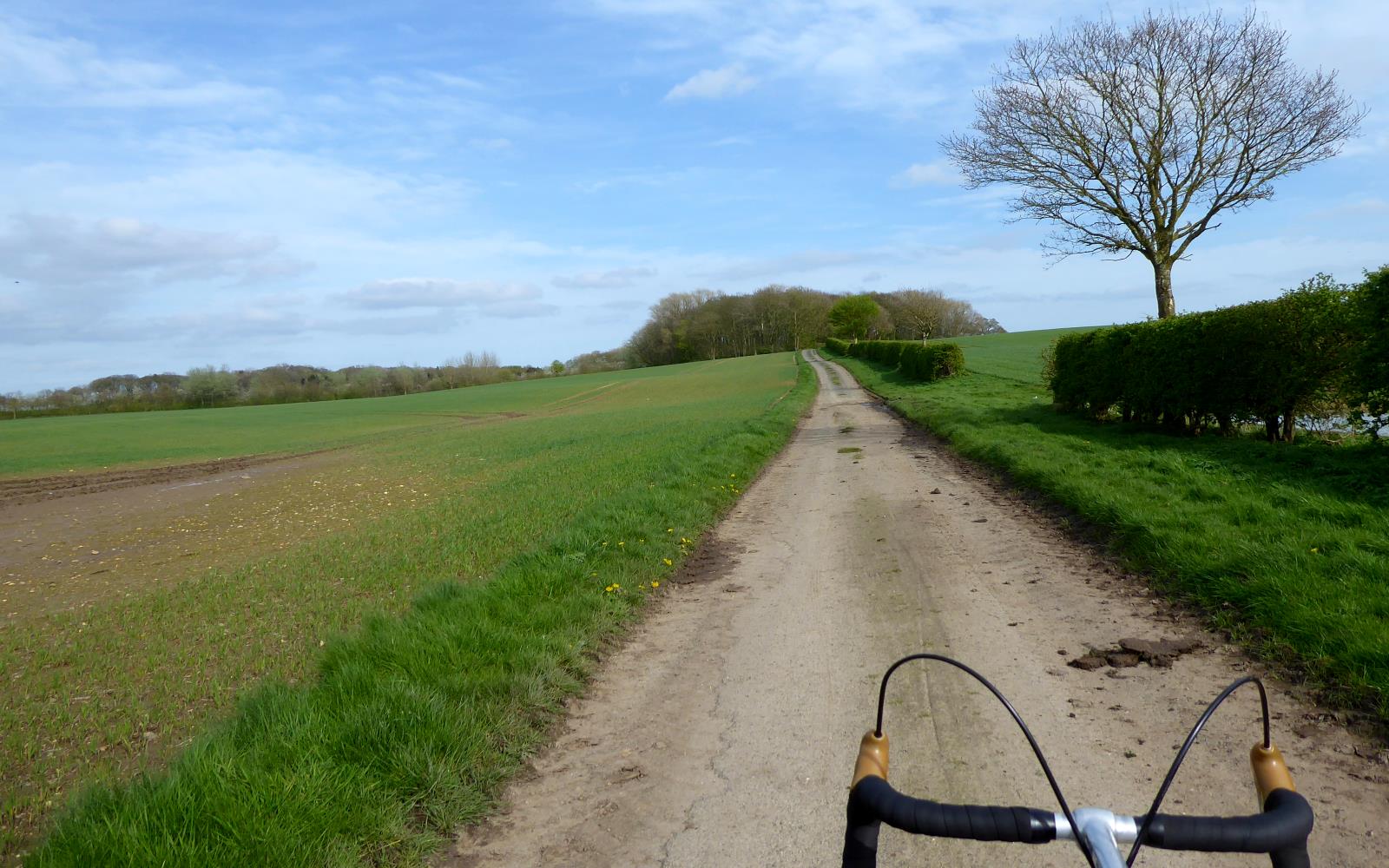
Still, it was great fun, and I rocked up at little villages such as Tibthorpe and Hutton Cranswick and Skerne in a warm frame of mind. My 1978 Claud Butler was happy too: it likes going fast, likes being pedalled insistently.
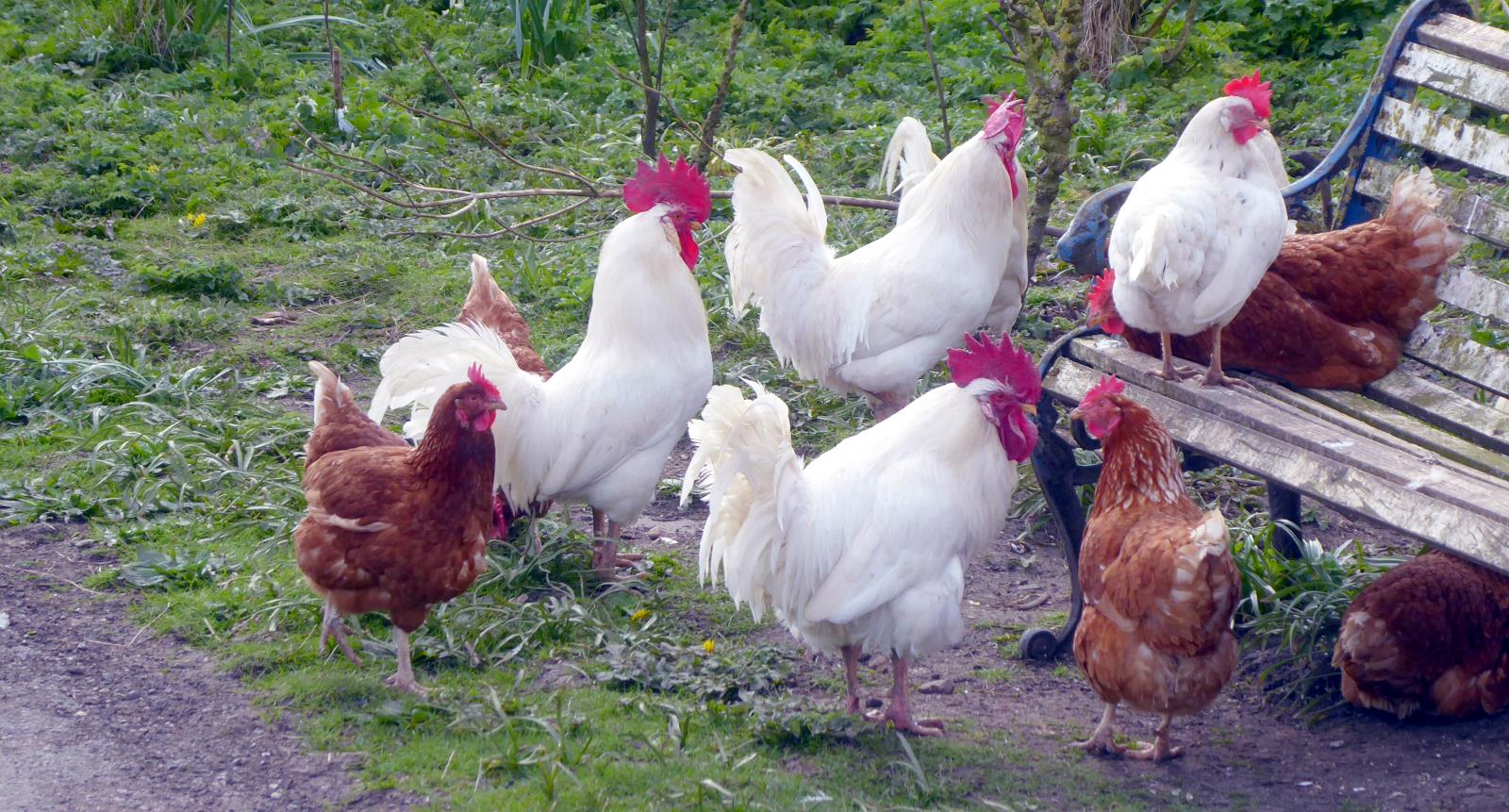
I didn’t feel the need to visit Driffield – I’d been there recently investigating their Codebreaker Trail – and instead enjoyed dawdling along the effectively car- (but not always tractor- ) free lanes through this flat, quiet farmscape. There were a couple of level crossings closed to motor traffic but open to bikes and peds, enhancing the off-piste feel.
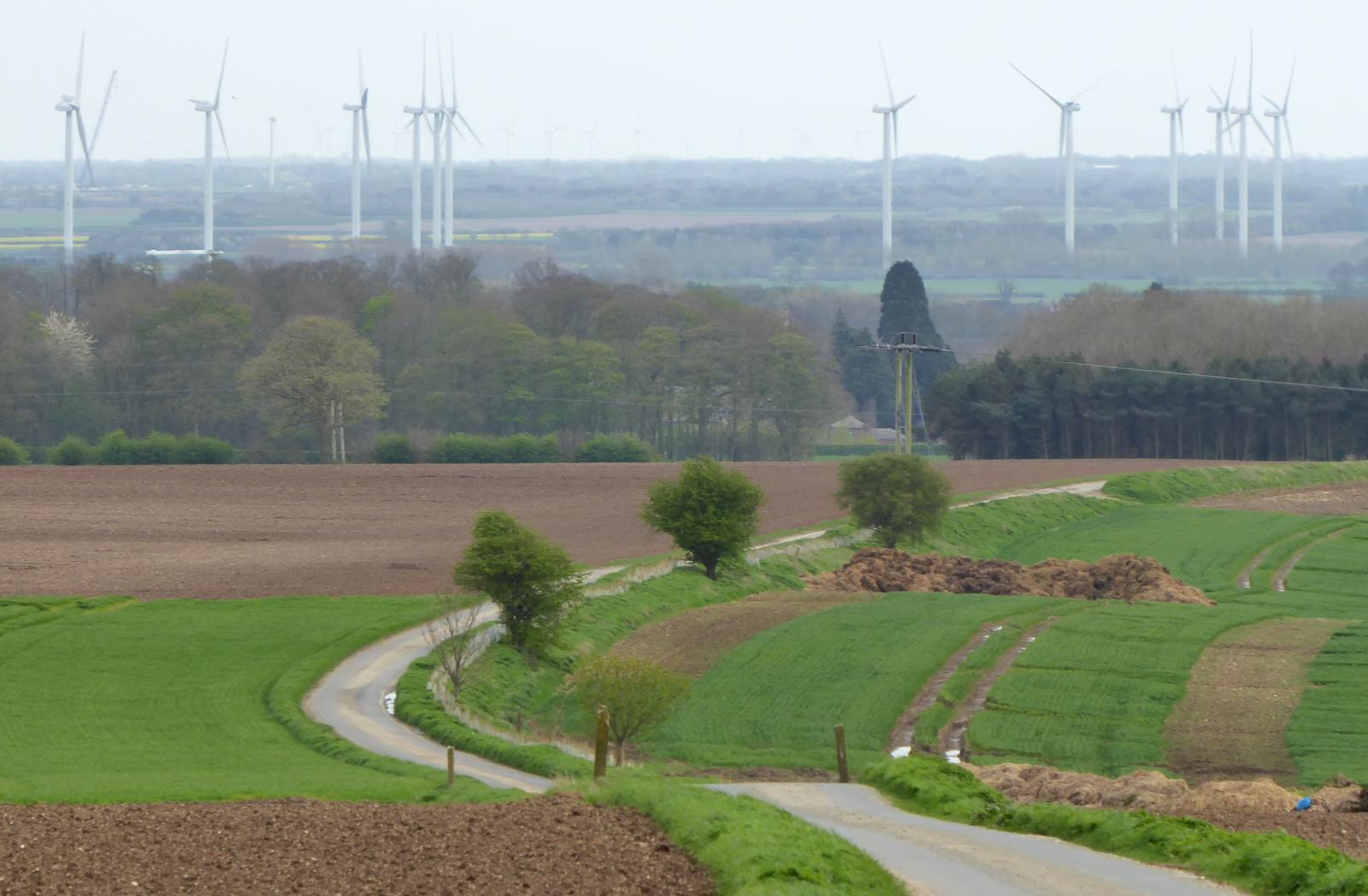
After Burton Agnes, which the other way round would sound like a trendy singer-songwriter, I climbed to the final ridge and turned right to take the old Roman Road into Bridlington, my destination. A mostly-downhill vibe got me to the Old Town, which I’ve been to many times before, and to the final imperfectly-signed run to the WoR finish on the promenade.
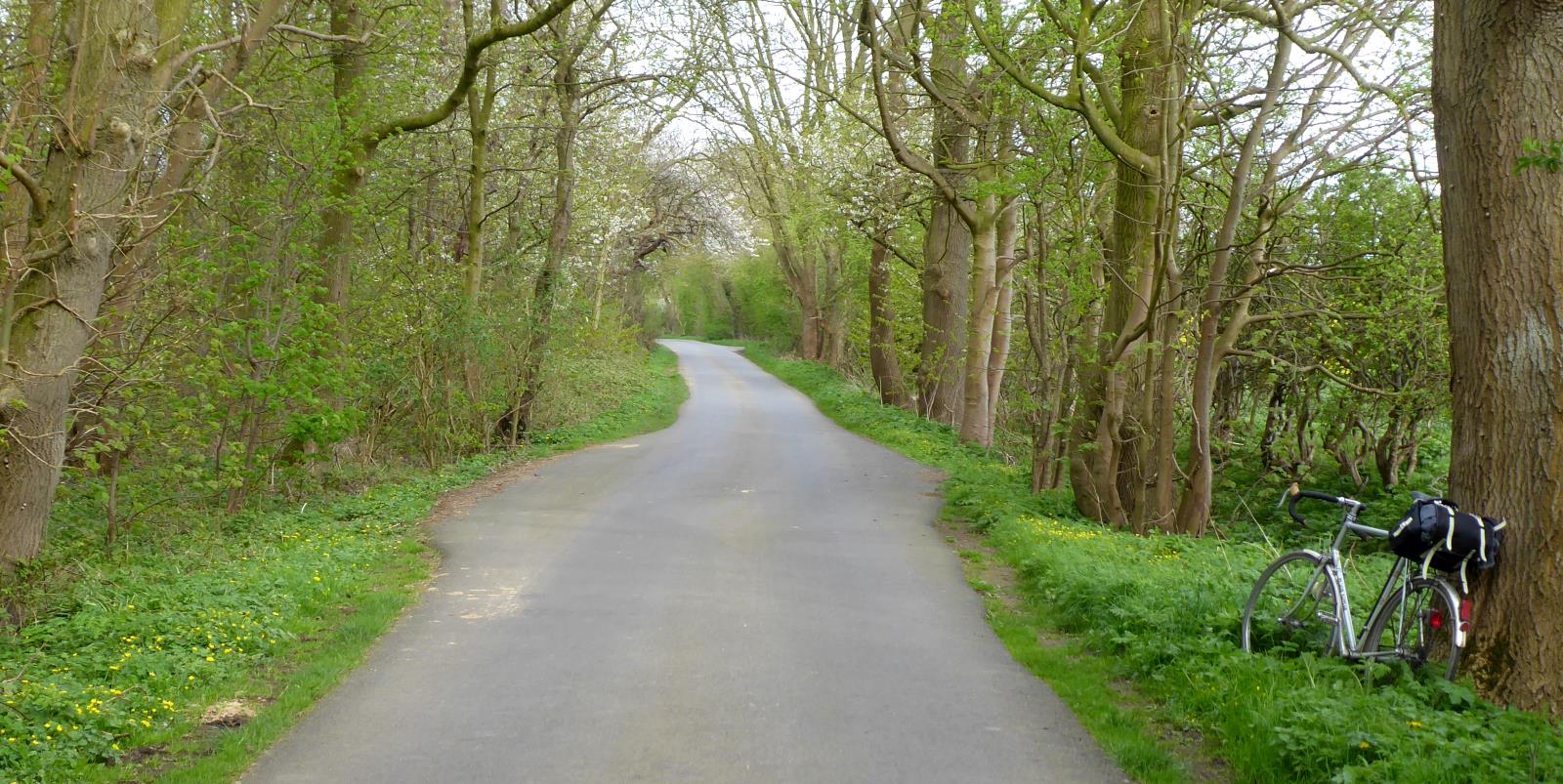
Getting there proved a bit more roundabout than I expected, going through the centre of town instead of the official route by mistake. But it was good to be confronted with the unpretentious sunny-afternoon buzz of a bucket’n’spade seaside town.
Bridlington is unlikely to feature in the Sunday Times lists of trendy places for middle class professionals to talk about moving to, before they stay in London anyway when they find there are certain reasons why the property is cheap. Just as well.
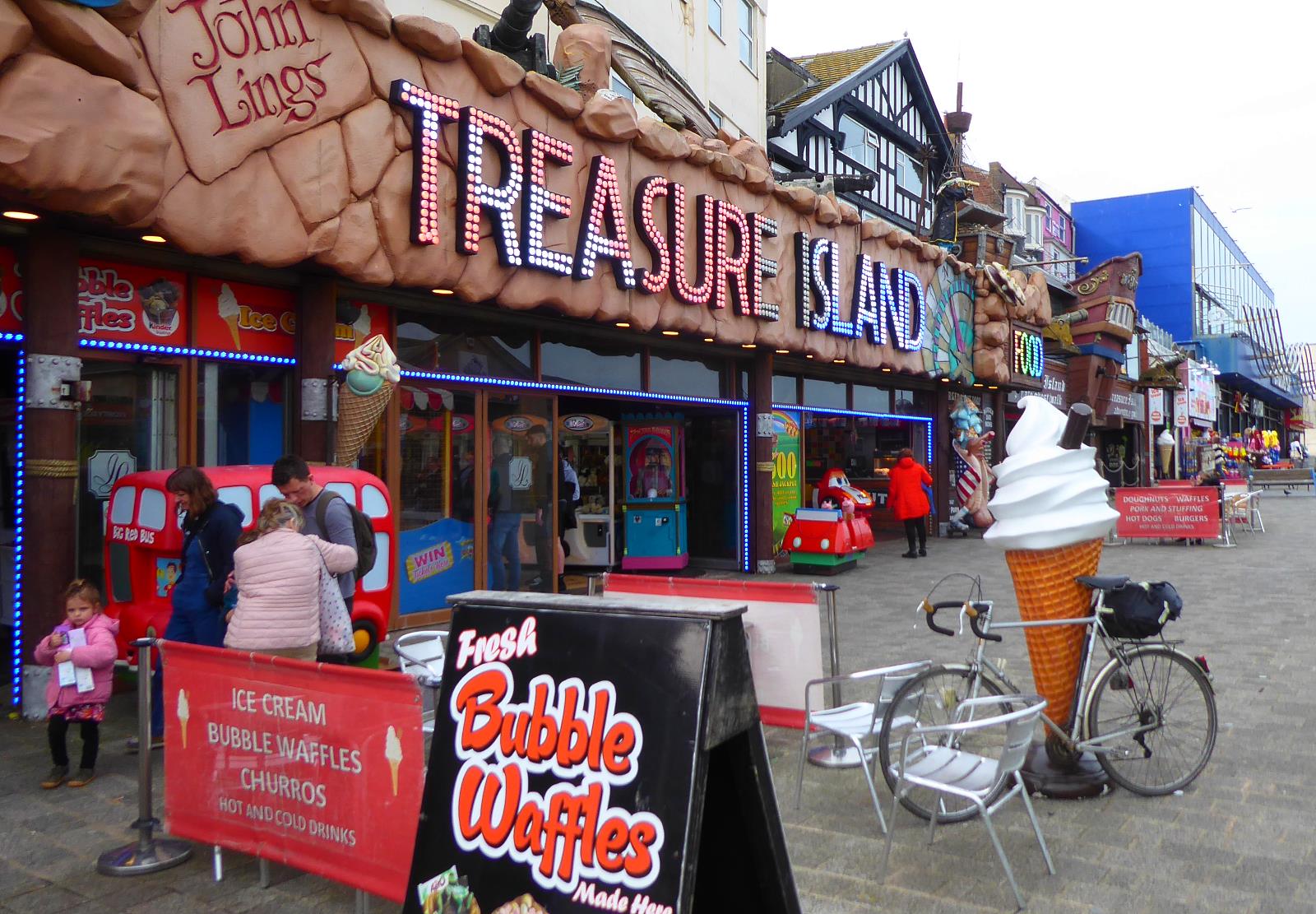
I found the End Marker and took various appropriate and inappopriate snaps, and headed to the nearby Wetherspoon for a final celebration 1970s supper of fish and chips and a lager.
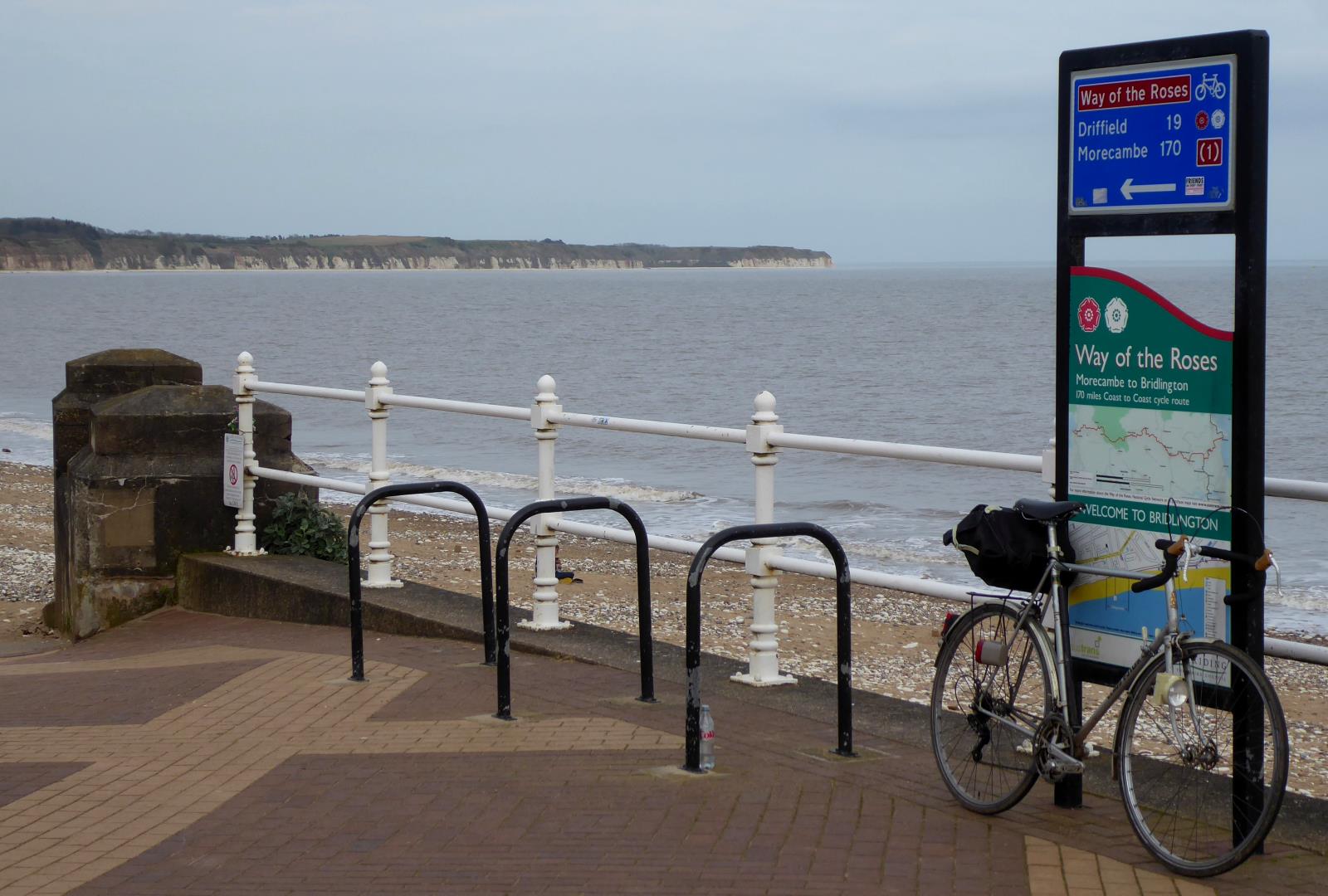
It’s been a very enjoyable trip, and the 1978 bike behaved perfectly: no mechanicals, no worries, no punctures, no problems. In fact, a smooth and delightful ride – I’ll go touring on this again, though perhaps not in the hilly terrain of the Dales. But I got a buzz out of travelling lighter than usual.
I’ve written up the trip for an article in Cycle magazine, which I’ll link to after it gets published. My conclusion was this:
So what did I learn? That vintage bikes aren’t just lovely to ride, they’re also talking points. Several times a day a head will turn and someone will come and ask about your bike. That youth hostels, though far fewer than in the 1970s, are still great sociable places to put your phone away in. That last-minute bargain beds can be worth looking out for, but that I won’t be forsaking my modern conveniences of accomm websites, map apps and digital cameras. That I’ll use my Claud Butler for pleasure jaunts and maybe for more tours, and certainly also go saddlebag-touring on some of my other bikes.
But mainly, I learned that much of what makes bike touring a pleasure is still there. And I found it on my 1970s-style Way of the Roses. Quiet lanes, country scenery, village cafes, chatting with fellow travellers, the joy of self-contained travel… these things don’t change. Never mind the past; here’s to the future.
Miles today: 40
Miles Morecambe to Bridlington: 173
